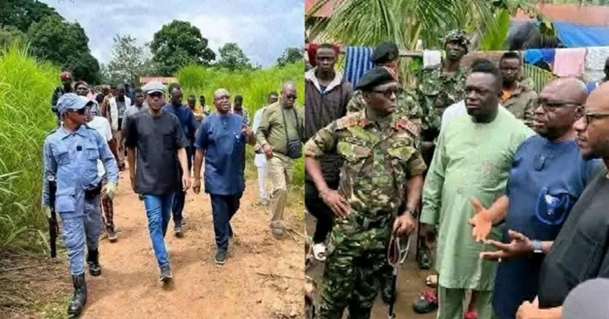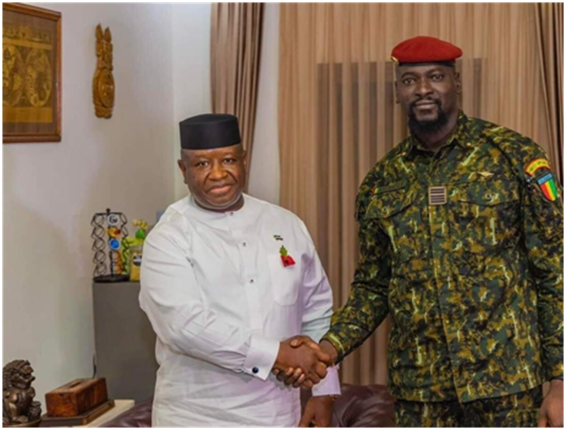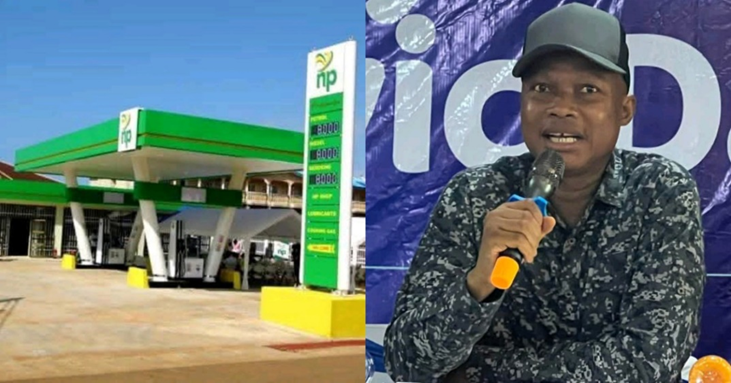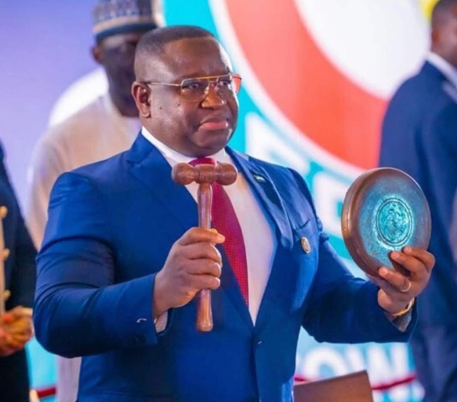By Mackie M. Jalloh
The longstanding border dispute over Yenga, a village in Sierra Leone’s Kailahun District, has once again drawn regional attention. On Friday, August 29, 2025, a high-level delegation from the Economic Community of West African States (ECOWAS) embarked on a fact-finding mission to assess the situation firsthand. The mission, led by Hon. Morie Lengor, Sierra Leone’s Minister of Internal Affairs, aimed to gather information and facilitate dialogue between Sierra Leone and Guinea regarding the contested area.
Yenga’s strategic location at the confluence of the Mafissia and Makona rivers has made it a focal point of contention between Sierra Leone and Guinea. During Sierra Leone’s civil war in the early 2000s, Guinean troops entered Yenga to assist in suppressing rebel forces. Post-conflict agreements stipulated that Yenga would revert to Sierra Leonean control once Guinea’s border was secured. However, Guinean forces have maintained a presence in the area, leading to ongoing tensions and disputes over sovereignty.
The ECOWAS delegation’s mission was multifaceted. Starting in Freetown, the team engaged with key government entities, including the Ministry of Planning and Economic Development and the Office of National Security. The delegation then proceeded to Kenema and Koindu in Kailahun District, where they met with local leaders and community members to understand the ground realities.
Hon. Lengor emphasized the importance of the mission, stating that it was not only about territorial claims but also about ensuring the well-being and security of the people residing in the disputed area. He urged residents to cooperate fully with the mission to facilitate a peaceful resolution.

H. C. Mohamadou Njie, representing the ECOWAS Ambassadors, clarified that while the mission focused on the Sierra Leonean side, it was intended to address issues related to both Sierra Leone and Guinea. He noted that while Sierra Leone responded positively to engagement, Guinea requested additional time for discussion.
During the visit, Hon. Ing. Fallah Tengbeh highlighted the proximity of Guinean military officers to the village and stressed the deep cultural ties between Sierra Leoneans and Guineans in the region. He reported on the humanitarian situation, revealing that residents of Yenga remain displaced with insufficient support. Despite the government’s provision of rice in April, essential supplies are lacking, and the Guinean Armed Forces have continued to occupy the village, causing fear among local communities.
Brig. Gen. George M. Bangura, Brigade Commander of the Republic of Sierra Leone Armed Forces (RSLAF), outlined security challenges, stating that higher-level approval is needed for access to the contested zone. This restriction hampers efforts to assess the situation and provide necessary assistance to the affected populations.
Mrs. Ange M. C. Konan Munu, representing the Mano River Union, emphasized the importance of regional collaboration, stating, “Whether through MRU or ECOWAS, the ultimate goal remains peace, unity, and stability in the sub-region.” Her statement underscores the collective responsibility of neighboring countries and regional bodies to address cross-border issues and promote peaceful coexistence.
The Yenga dispute has implications beyond bilateral relations between Sierra Leone and Guinea. It affects regional stability, economic activities, and the livelihoods of border communities. Both countries have a shared interest in resolving the issue amicably to foster development and ensure the well-being of their citizens.
The ECOWAS mission’s visit marks a significant step toward addressing the Yenga border dispute. While challenges remain, the engagement of regional bodies and the commitment of Sierra Leone to diplomatic dialogue are positive indicators. Continued cooperation, transparency, and adherence to international agreements will be crucial in finding a lasting solution that respects the sovereignty and rights of all parties involved.
As the situation develops, it is imperative for all stakeholders to prioritize peace and stability, ensuring that the people of Yenga and the broader region can live without fear and with access to the resources and support they need.



